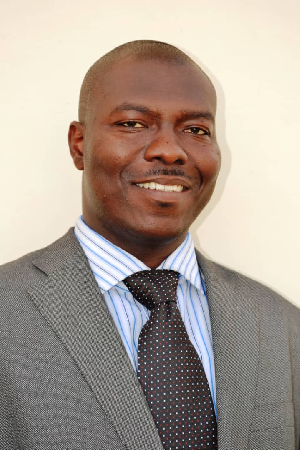- Home - News
- TWI News | TV
- Polls
- Year In Review
- News Archive
- Crime & Punishment
- Politics
- Regional
- Editorial
- Health
- Ghanaians Abroad
- Tabloid
- Africa
- Religion
- Election 2020
- Coronavirus
- News Videos | TV
- Photo Archives
- News Headlines
- Press Release
General News of Thursday, 3 August 2006
Source: ADM
Ghana Lebanese protest
The Lebanese community in Ghana has protested against what they term as “the inhuman treatment meted out to them by the Israelis”. According to them, Israel has for the past three weeks killed more than a thousand civilians, with majority of them being children and women.
At a press conference at the Lebanese embassy on Wednesday, which they said was to show solidarity with their compatriots and protest for peace, the Lebanese Ambassador to Ghana, Mr. Jad Alhassan said the attacks by Israel on Lebanon are deliberate and tantamount to crimes against humanity.
He noted that Israel is systematically destroying infrastructure and killing civilians including UN troops.
“In fact a soldier man from Ghana has been killed together with his family”, he said, adding that peacekeeping troops of the UNIFIL could not even leave their base to dig out their bodies, because the short trip to his house was too dangerous due to the continuous shelling by the Israel air force.
Mr. Jad Alhassan denied the allegation by Israel that Lebanon has captured their soldiers, hence the attack and said Israel planned the attack long ago but is using the kidnap of two Israeli soldiers by Hezbollah as a camouflage.
“The UK Times and other newspapers in Israel reported this long before the attack… We knew the attack way back last year, the capture of Israel soldiers is a lie”, he said.
Ambassador Jad Alhassan called on the international community not to neglect Lebanon He questioned why Israel could defy the orders of the international community and called for an immediate intervention to stop what he described as the massacre.
“We are innocent… We need help… We are being attacked illegally”, he said. The protest saw Lebanese children holding placards that read “Am I a terrorist?”, “Stop killing”, “Khadas enough”, “An eye for an eye will make us all blind”, “War of shame”, “Free world”, “War on war”.
Two Lebanese children who spoke after the ambassador, pleaded with the international community to come to their aid. They cried to the world not to abandon them if “we children are really the future of the world and the symbol of peace”.
The about 60 children in the protest sang their national anthem and said after that it was to show solidarity with their country. The president of the Lebanese community, Saed Fakhery expressed the community’s utmost gratitude to the Ghana government for standing firm at the Security Council to call for an immediate and unconditional ceasefire in Lebanon, a stand he said has been rejected by some other members of the Council.
He noted that the number of people being killed is growing rapidly by the hour.
“More than 1000 persons have been wounded. More then 850,000 persons have been displaced and made refugees…All school buildings in Lebanon are being used to shelter some of the refugees”, he said.
Mr. Saed Fakhery reiterated his call on Ghana’s government to demand an immediate ceasefire to end these “atrocious and inhuman acts of barbaric violence meted out to innocent civilians”.
The war on Lebanon started on July 12 2006 when Hezbollah initiated Operation Truthful Promise, resulting in the capture of two Israeli soldiers to exchange them for three Lebanese prisoners held by Israel, and the killing of eight soldiers and the wounding of twenty more. Israel then responded with Operation Just Reward, later renamed Operation Change of Direction.
Israel's strike has included massive bombing raids by the Israeli Air Force (IAF), an air and naval blockade of Lebanon (especially southern Lebanon and Beirut), a force of tanks and armored personnel carriers, and a large incursion into southern Lebanon by IDF ground troops. The Lebanese government has disavowed Hezbollah's actions while urgently calling for international peacemakers to end the conflict by enforcing an immediate ceasefire.
The conflict has killed many civilians, caused widespread damage, displaced many people and disrupted normal life across most of Lebanon and northern Israel. Both sides' attacks on civilian population centers and infrastructure have drawn sharp criticism internationally










